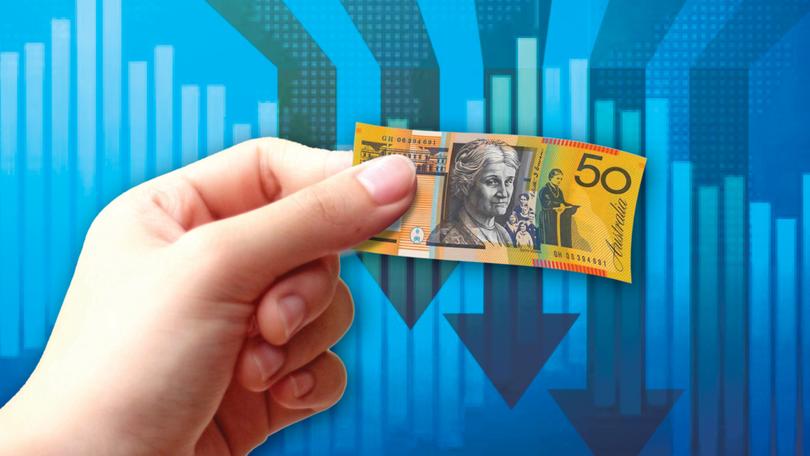Inflation slides to lowest rate nationally in two years with 4.1pc for December quarter
Are the new inflation figures enough to temper the Reserve Bank’s aggressive approach to reaching its target?

The national inflation rate has to plunged to 4.1 per cent in the year to the December quarter, a substantial fall likely to reignite calls for the Reserve Bank of Australia to start interest rate cuts this year.
The annual rate fell from 5.4 per cent in the September quarter to 4.1 per cent in the December quarter, figures from the Australian Bureau of Statistics on Wednesday showed.
It’s the lowest rate nationally in two years and over the quarter, the lowest rate of increase since March 2021, ABS head of prices statistics Michelle Marquardt said.
Sign up to The Nightly's newsletters.
Get the first look at the digital newspaper, curated daily stories and breaking headlines delivered to your inbox.
By continuing you agree to our Terms and Privacy Policy.The quarterly inflation figures are the most relevant for the consideration of the RBA, which has raised interest rates substantially to push the rate down.
Inflation peaked at 7.8 per cent nationally in the December quarter of 2022 — the highest in more than 30 years. Since May 2022, when the inflation rate began increasing at pace, the RBA has hiked interest rates from 0.1 per cent to 4.35 per cent in November last year.
The biggest contributors to inflation in the three months to December 2023 were housing, alcohol and tobacco and insurance and financial services.
The RBA also focuses on what is known as trimmed mean inflation, which looks at price rises with the most volatile prices such as petrol and food removed. On that measure, annual inflation was 4.2 per cent, down from 5.1 per cent in the prior quarter.
The central bank is working to push the inflation rate to between 2 and 3 per cent, which it has not consistently been for almost a decade.
